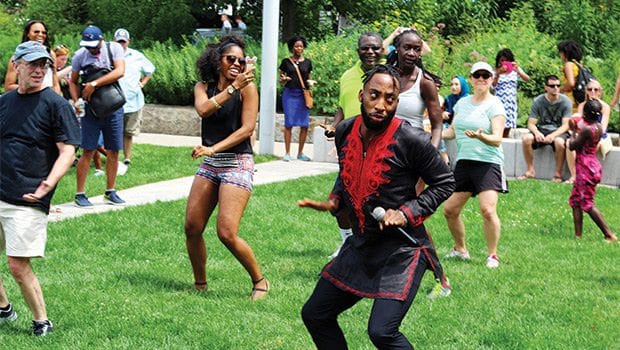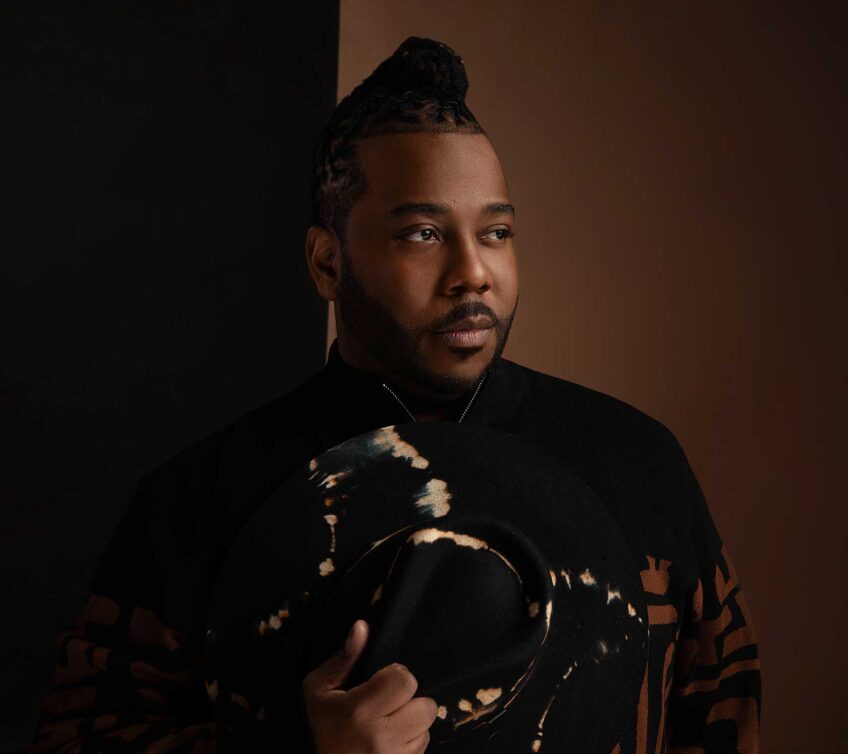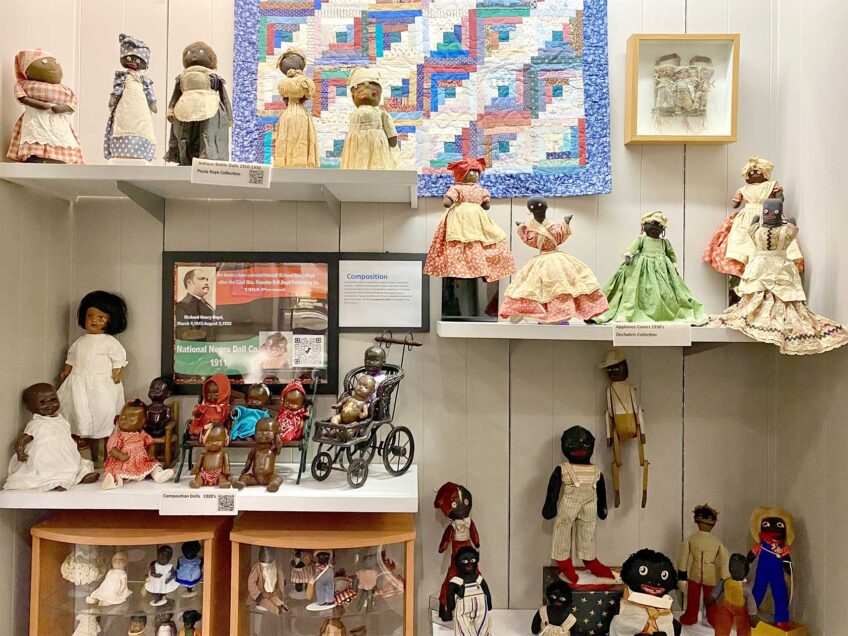
On Sunday, July 24, hundreds of members of the African American community gathered on the Rose Kennedy Greenway to celebrate their heritage. Tents lining the park path boasted colorful tunics, handmade masks, and authentic foods from local spots like Samosa Man and R & S Jamaican Restaurant.
At the main stage tent, people of all ages performed traditional dances, coming together to the heavy drumbeat of Kearoma Rantao and 2Kee. The nonprofit Shalupe Foundation puts on the African Festival of Boston annually. It’s the biggest African festival in New England, and aims not only for entertainment, but also to empower the visitors and address the ongoing problems in their homelands.
Vendor Marcel Fwamba sat with his wife in the shade of their tent, where they were selling masks, figurines and jewelry from the Democratic Republic of Congo.
“The festival is very important because it gives us time to celebrate our heritage,” Fwamba said.
The intricately designed wooden pieces feature a heavy emphasis on nature and animals, an ode to the connection between African people and the physical land they come from. These hand-crafted objects are a reminder of the artistry that often is lacking in our contemporary world.
The festival wasn’t all fun and games. In a spoken word performance, Leonard Tshitenge reminded the audience of the terrors still going on in the Congo.
“Welcome to the Congo,” he said into the microphone, standing in the grass before a solemn crowd. “Imagine the Congolese women bathing in pools of blood. Welcome to the Congo, the rape capital of the world.”
Tshitenge spoke of the way Congolese people are worked to death and abused regularly in pursuit of minerals that are used to power cell phones and other electronics. His performance reminds the audience that although we are free to spend our Sunday enjoying the festival, many are not so lucky.
The Shaulpe Foundation, operating out of Kinshasa in the Democratic Republic of Congo, runs sustainable programs that provide tuition assistance, hospital bills, skills training and other services to constituents. They work daily to combat the violence that Tshitenge spoke of in his performance. Ultimately, the festival’s sixth year was about communal spirit and overcoming obstacles. Tshitenge said it best as he urged his audience to take action against the injustices that haunt the community.
“We have the power to change the narrative,” he said. “We have power in our hands, when we take each other’s hands.”




![Banner [Virtual] Art Gallery](https://baystatebanner.com/wp-content/uploads/2024/04/Cagen-Luse_Men-at-store-e1713991226112-150x150.jpg)

![Banner [Virtual] Art Gallery](https://baystatebanner.com/wp-content/uploads/2024/04/Cagen-Luse_Men-at-store-e1713991226112-848x569.jpg)

